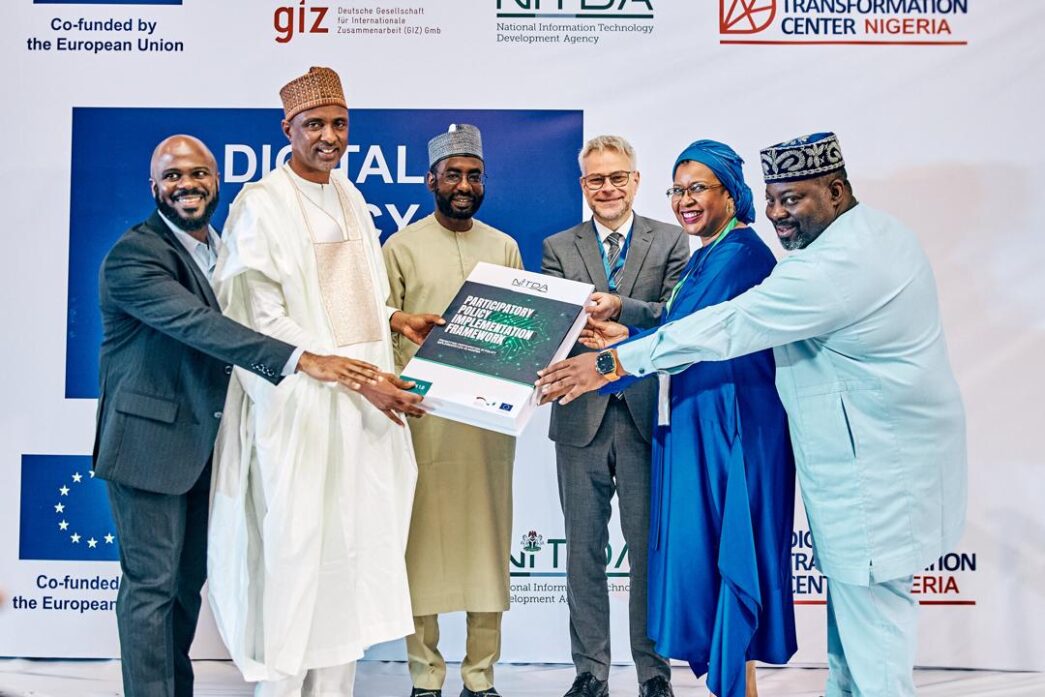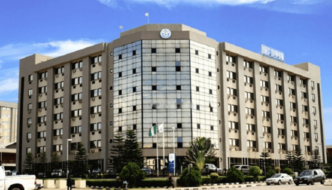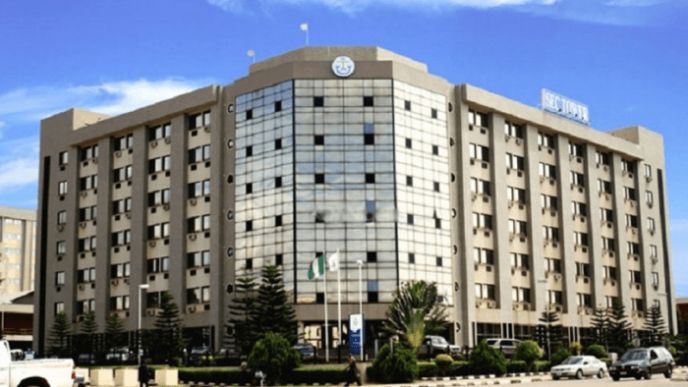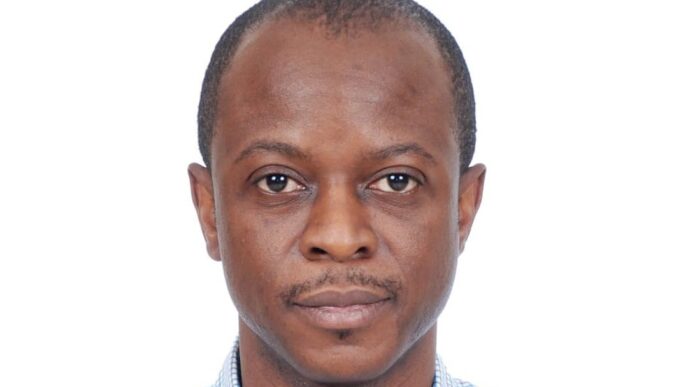From left to right: Olusegun Alimi, technical advisor, digital policy and cooperation, GIZ/DTC Nigeria; Faruk Yusuf Yabo, permanent secretary, ministry of communications, innovation & digital economy; Kashifu Inuwa Abdullahi, director-general and CEO NITDA; Markus Wauschkuhn, SEDEC coordinator, GIZ Nigeria; Thuweba Diwani, head of project, GIZ/DTC Nigeria; and Obi Asika, director-general and CEO, NCAC, at the handover of PPIF in Abuja.
The ministry of communications, innovation and digital economy says the newly developed participatory policy implementation framework (PPIF) will promote accountability and enhance the sustainability of policies across sectors.
In a statement on Thursday, the ministry said it officially received the framework on July 25 from Deutsche Gesellschaft für Internationale Zusammenarbeit (GIZ) and Digital Transformation Center (DTC) Nigeria.
Speaking on the framework, Faruk Yabo, permanent secretary of the ministry, said the framework aims to strengthen the effectiveness and empowerment of policies.
Yabo said the framework was developed through a series of design sprints and focus group sessions at both national and sub-national levels, involving key stakeholders from diverse sectors.
Advertisement
He said the participatory approach would ensure robust and inclusive digital policy implementation.
“We look forward to enhanced collaboration between regulators, the public sector, and the private sector,” Yabo said.
“The stakeholders who contributed to developing this crucial policy document have demonstrated dedication and expertise, which have been instrumental in realising this vision.
Advertisement
“This vision involves creating a participatory policy-making process at both federal and state levels.”
On his part, Kashifu Abdullahi, director-general and chief executive officer (CEO) of the National Information Technology Development Agency (NITDA), said the framework plays a key role in fostering economic growth and employment.
“It is to help subnationals apply the country’s digital policies to create more employment opportunities and grow the economy,” Abdullahi said.
“We are implementing that framework with the ecosystem with an ambitious target of achieving 95% digital literacy by 2030.”
Advertisement
Also, Markus Wauschkuhn, coordinator of Sustainable Economic Development Cluster (SEDEC), GIZ Nigeria, highlighted the sustainability of the framework.
He said when stakeholders are actively involved in the implementation of policies, those policies become sustainable and relevant across diverse contexts.
Speaking on the importance of the framework, Thuweba Diwani, head of project at GIZ/DTC Nigeria, said the PPIF will not just be handed over but a socialisation session will be conducted at the subnational level with policy actors from the public, private, and civil society sectors to guide.
This, he said, would help the stakeholders to effectively utilise the framework in implementing key digital policies in their states.
Advertisement
Add a comment











